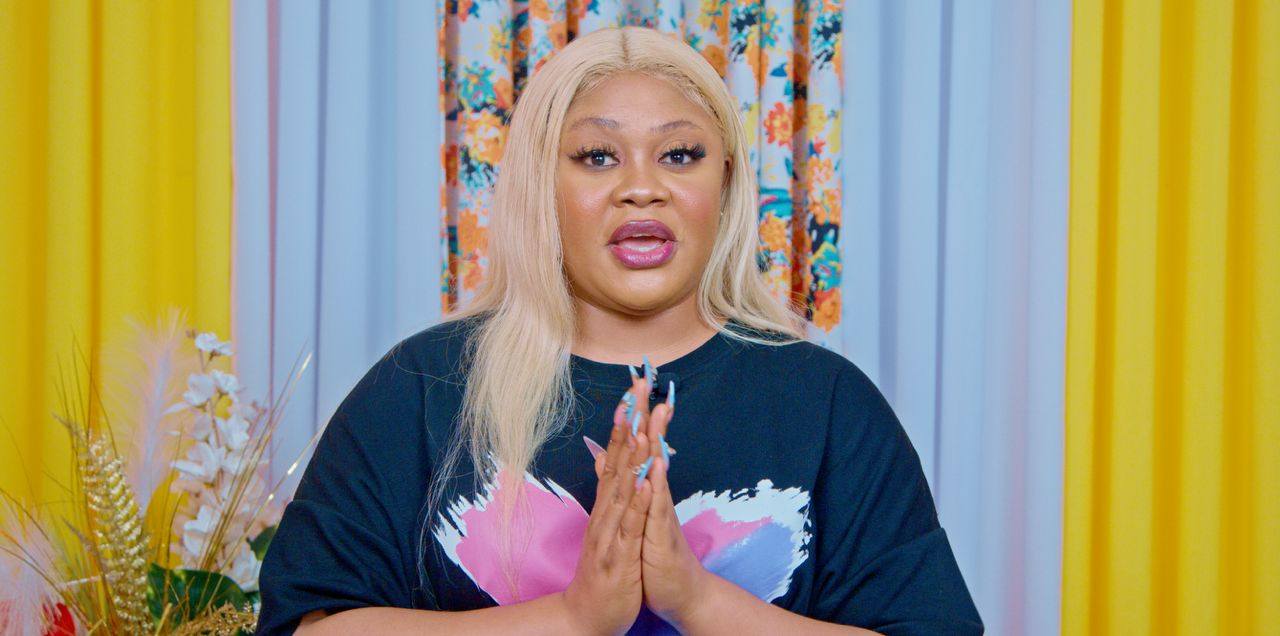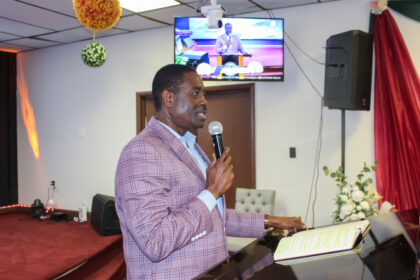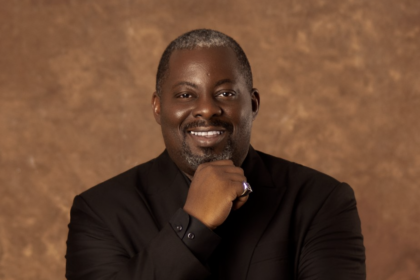The world of African digital commentary was recently jolted by a fiery international controversy centered on Cameroonian YouTuber Darling Lyonga. Following a provocative video targeting veteran Nollywood actor Kanayo O. Kanayo and making sweeping generalizations about Nigerians, Lyonga faced an immediate and widespread backlash that critically impacted her brand and subscriber base.
The $200K Spark: Origin of the Outrage
The controversy was ignited by an incomplete video segment featuring Kanayo O. Kanayo with Cameroonian friends, where the actor concluded a comment by stating that a Nigerian man could offer a woman $200,000.
On October 6, 2025, Darling Lyonga released a 13-minute video titled “Do Nigerian Men REALLY Spend More On Their Women Than Cameroonian Men?” This video quickly devolved into a heated rant, not only lashing out at Kanayo for his statement but extending the criticism to include the actor’s family and, controversially, Nigerians as a whole, whom she characterized as “stingy.”
The content crossed professional and personal boundaries, with Lyonga questioning Kanayo’s financial standing based on his career choices and his son’s employment.
Specific Allegations: Lyonga questioned Kanayo’s wealth by stating: “…for you to be able to give a woman that amount of money, you that get more for your account. So why are you still shooting films? Because you get your own YouTube channel. Why are you shooting films? Why are you still featuring in low-budget productions?”
She further targeted his family life, citing a clip of Kanayo visiting his son at a pharmacy store: “He went and visited his son at a shopping mall….if you get that kind of money to give a girl, why is your son working?” The video context reportedly showed the son, who is studying pharmacy, working a summer break job—a common practice that Lyonga misinterpreted as a sign of financial distress.
Immediate and Widespread Condemnation
The reaction to Lyonga’s video was swift and severe. Within seconds of its release, her audience began an organized rebuke, leading to hundreds of immediate unfollows and unsubscribes. The condemnation was not limited to Nigeria; citizens from across the continent, including several Ghanaian commentators, joined the chorus of disapproval.
The severity of the response was highlighted when two Ghanaian YouTubers, Teejay Studios (Oct 7, 2025: Naija rants, my piece of advice to Darling Lyonga,my sister from Cameroon) and Shadout TV (Oct 8, 2025: Cameroon’s Darling Lyonga EXPOSED For Insulting Nigerians, Tag Their Movies Low Budget & O.Kanayo) reportedly “dragged” Lyonga, publicly lecturing her on the essential etiquette and need for professionalism required of a continental commentator. This cross-border condemnation underscored a shared rejection of commentary perceived as divisive, unfounded, and unprofessional
https://youtu.be/KdPiGNITGao?si=Tlw3Zn91agHJygmG
The Strategy of Controversy and the Pursuit of Monetization
An analysis of Lyonga’s content history suggests a calculated strategy focused on driving traffic and achieving monetization goals by leveraging regional rivalries. Her channel predominantly focuses on Nigerian issues, often seeking to generate subscriber interest by creating provocative content about Nigeria, Ghana, and South Africa.
This strategy sharply contrasts with her approach to her own country, Cameroon, where she reportedly produces minimal content due to a politically sensitive environment that has led to the marginalization and militarization of certain areas, creating a fear of arrest for citizens who speak negatively against the government.
Her history of inflammatory videos includes:
September 19, 2025: A video titled “Will Nigeria Head Down the Same Path as Nepal?” with multiple provocative subtitles, which was widely dismissed and rebuked by Nigerian viewers for being alarmist and unfounded.
September 5, 2025: A video on Miss Universe Nigeria 2024 titled “The SHOCKING Absence of Chidima Adesina at Miss Universe Nigeria 2025,” where she appeared to plead with South Africa to “attack” Nigeria, drawing strong warnings from viewers.
September 16, 2025: The digging up of an old video titled “Ghanaian Traders in Nigeria Are Facing BIG Problems!” during the peak of protests in Ghana, seemingly calculated to inflame tensions between the two nations.
A Fundamental Lack of Research and Professionalism
A recurring critique of Lyonga’s commentary is her evident lack of research and professional boundaries. Our research shows that her presentations on Nigeria are consistently lacking in factual basis, are unverified, and are delivered through constant “ranting” rather than informed debate.
Specifically, she has displayed a lack of knowledge regarding Nigeria’s political structure and diversity. She failed to acknowledge that Nigeria is the largest democracy in Africa, where its states are united but maintain a degree of independent sovereignty, often referring to them as “sub-countries.” Furthermore, her claim to only mention three Nigerian tribes was found to be highly provocative, failing to recognize the country’s vast ethnic diversity.
Final Commentary: A Call for Responsibility and Discernment
The fallout faced by Lyonga is a necessary lesson in the digital age: traffic should not outweigh truth, and monetization should not override morality.
Lyonga, the severe backlash should serve as a clear indicator that the pursuit of cheap controversy for clicks is a fundamentally unsustainable model. There are critical issues within your own nation of Cameroon—issues of marginalization, civil discourse, and safety—that require the energy and voice of capable commentators. It is time to focus your energy on your country’s issues and cease the baseless, provocative commentary on Nigeria and its neighboring nations.

For Nigerians and the entire pan-African digital community, this episode highlights the need for discernment in who you follow on social media. There is a growing number of content creators who lack professional boundaries and are solely seeking subscribers and ad revenue by instigating continental conflict and spreading unverified, sensationalized information. Followers must be vigilant; guard your digital space, verify your sources, and be careful of people looking for money online by sacrificing truth and continental unity.











